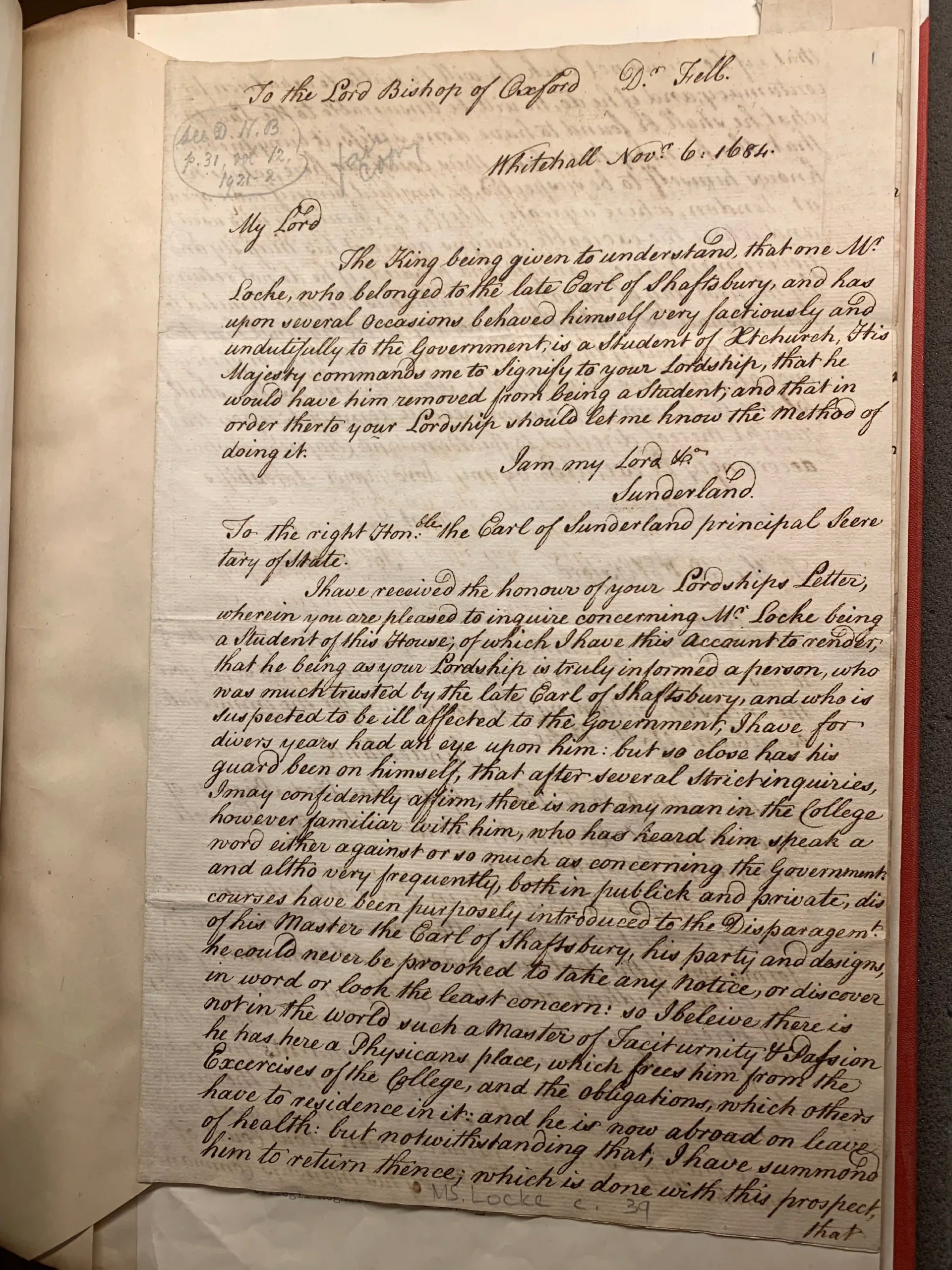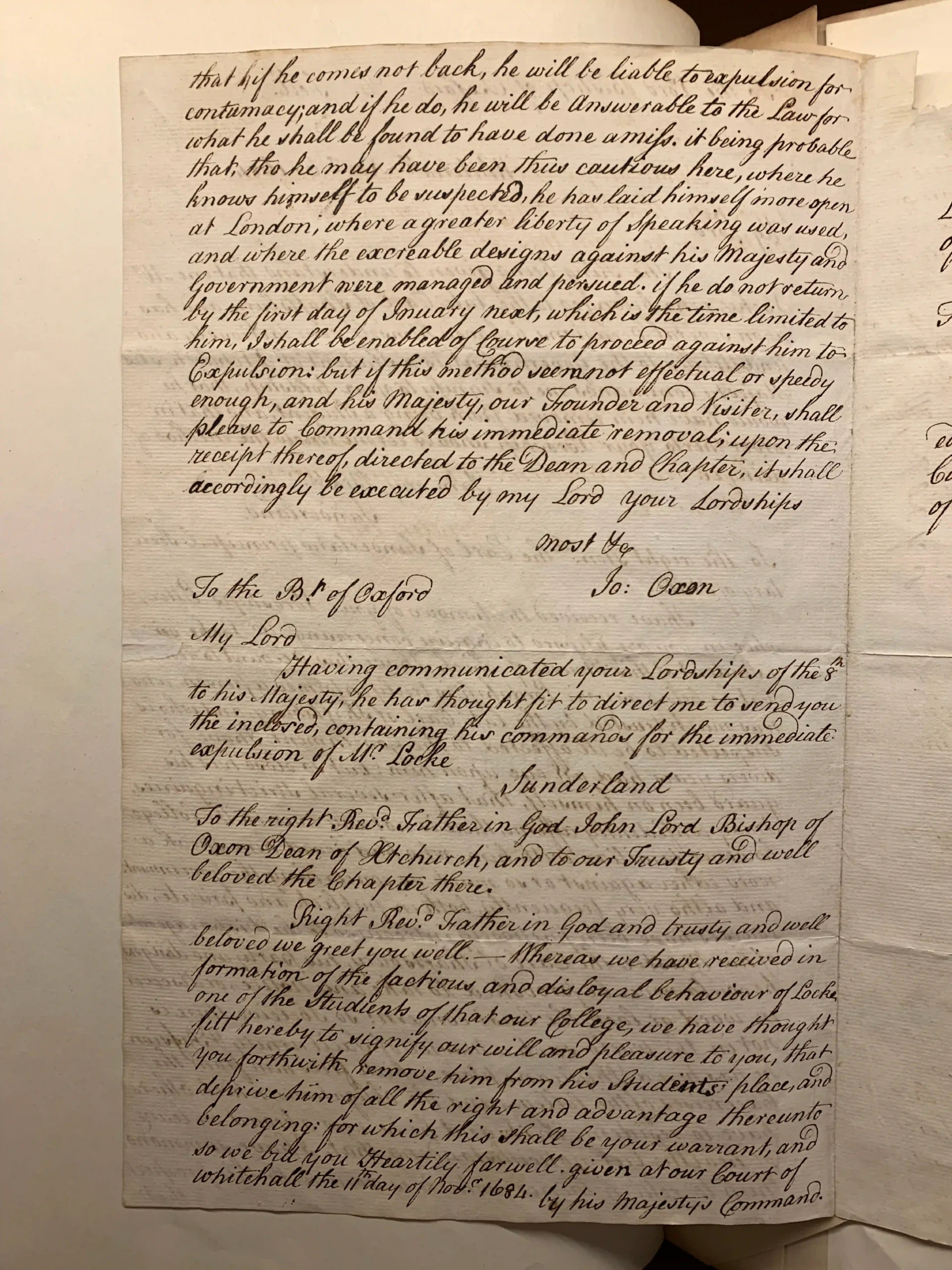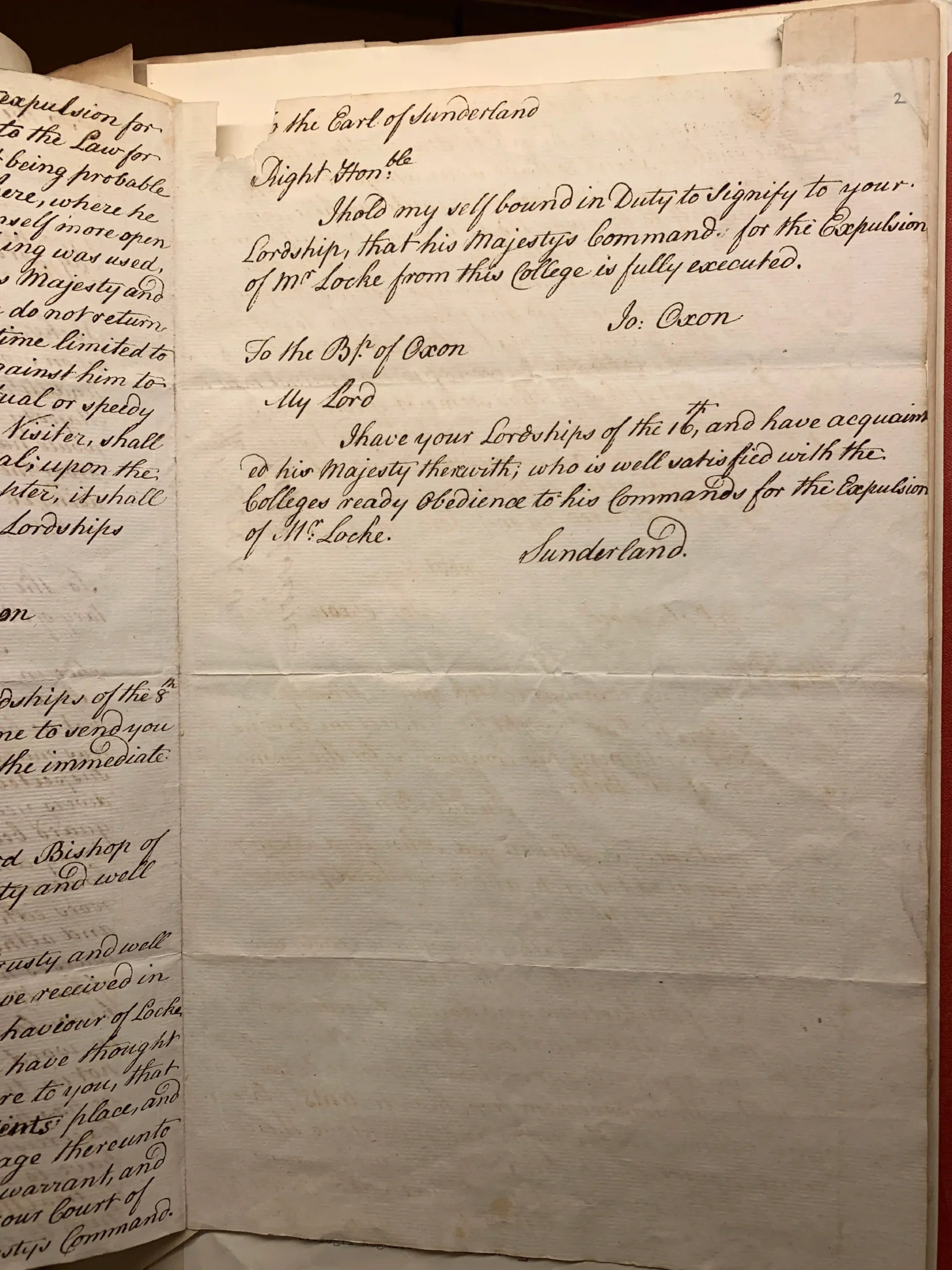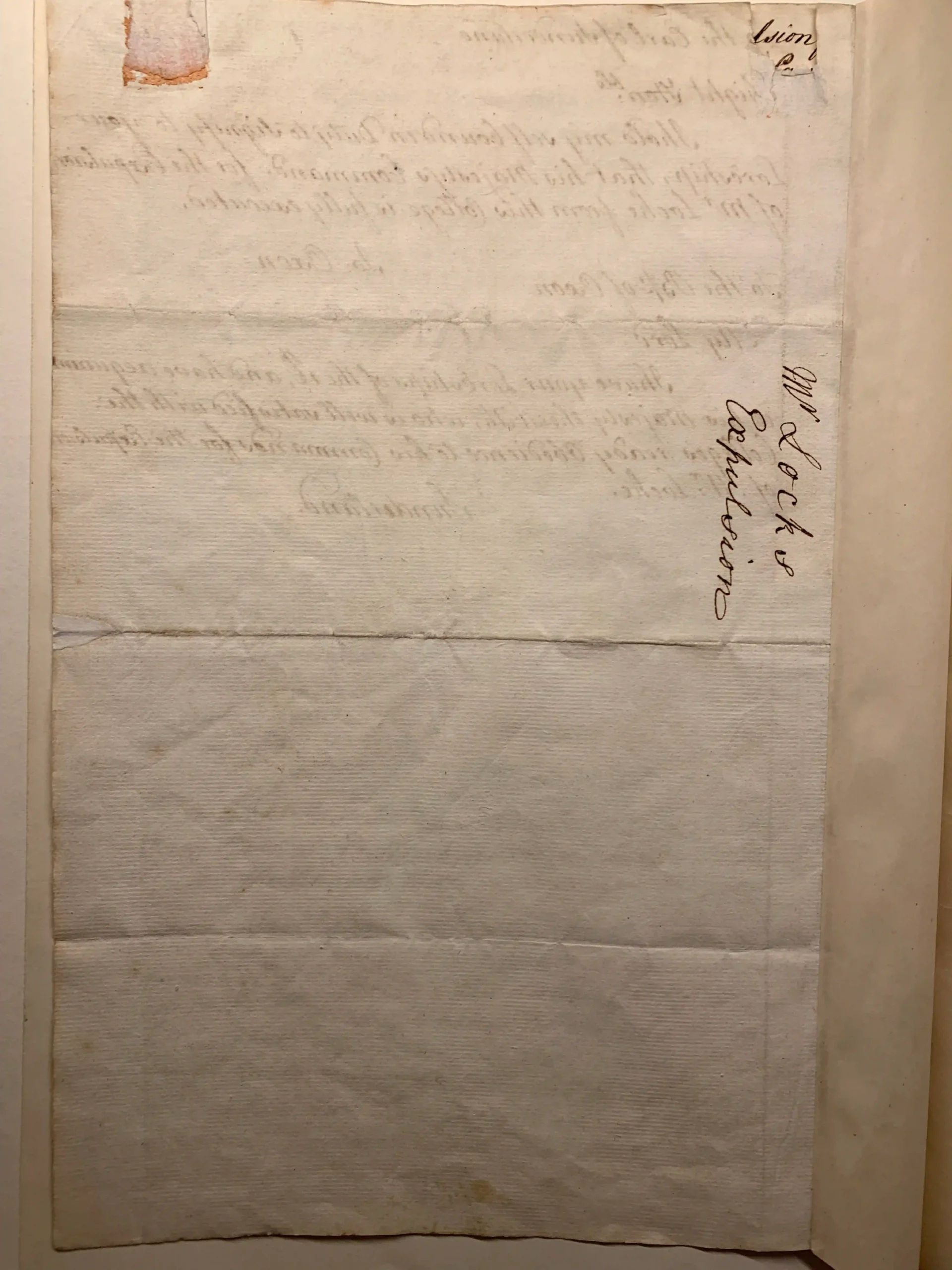Finding the Enemy
On the Appointment of John Locke To Christ Church College
Having come under the watchful gaze of the monarchy, Locke became subject to the Crown’s strict surveillance and schemes. When he took up a position in Christ Church College, it was demanded that his job be taken from him.
Introduction
John Locke fled to Holland around September 1683 amidst the fallout of the Rye House Plot. While not directly implicated in the suspected plot, Locke was associated politically and personally with those accused, and he feared for his life. For instance, individuals such as Algernon Sidney, a former member of Parliament, was tried and executed for treason based partly on unpublished manuscripts, in 1683, shortly after Locke fled.
Those manuscripts were seized by Roger L’Estrange, who used a general warrant to search Sidney’s house and a locked trunk. A General Warrant gave him the right to search anywhere he wanted (including in anyone’s house) for any evidence: such warrants would become an issue again a century later, before the American Revolution.1Richard Ashcraft, Revolutionary Politics & Locke’s Two Treatises of Government, (Princeton University Press, 1986), 401-405.
In 1682, the year before, Charles II had Shaftesbury prosecuted for treason, a charge he escaped only because a London jury refused to convict. After 1683, the government used the alleged plot to pursue potential conspirators aggressively, seizing the opportunity to persecute a large range of their political enemies.
While Locke was in exile in Holland, the government turned its attention to his position as a tutor (or faculty member) at Christ Church College. In November 1684, Lord Sunderland, the secretary of state for Charles II, wrote in November 1684 to Bishop Fell, the Dean of Christ Church College. He sought to compel Locke to return to England (where he could then be captured and tried) or to at least humiliate him, by forcing Fell to remove Locke from his position.
Questions to Consider:
- How did Fell respond to Sunderland’s initial request? How and why did his response change?
- How would you interpret such a request if you were Locke? What does this reveal about how power relations might influence what someone like Locke would be willing to write or say? Or anyone else?
- What does this mean about how historians should interpret writings about government or about slavery during this period?
Holly Brewer
Lauren Michalak
Further Reading
- Ashcraft, Richard. Revolutionary Politics & Locke’s Two Treatises of Government. (Princeton: Princeton University Press, 1986).
- Milton, Philip Milton. “John Locke and the Rye House Plot.” The Historical Journal 43, no. 3 (2000): 647-68.
- Zook, Melinda S. Radical Whigs and Conspiratorial Politics in Late Stuart England. (State College: Pennsylvania State University Press, 2010).
Sources
- Letters between John Fell, Bishop of Oxford, and Robert Spencer, 2nd Earl of Sunderland. November 1684. MS Locke 8, f. 1-2.
- Bodleian Library, University of Oxford.
- Transcription by Holly Brewer, Michael Becker and Lauren Michalak.
Cite this page
Content Warning
Some of the works in this project contain racist and offensive language and descriptions that may be difficult or disturbing to read. Please take care when reading these materials, and see our Ethics Statement and About page.

To the Lord Bishop of Oxford Dr. Fell.
Whitehall 6 1684.
My Lord
The King being given to understand, that one Mr.
Locke, who belonged to the late Earl of Shaftsbury, and has
upon several Occasions behaved himself very factiously and
undutifully to the Government, is a Student of , His
Majesty commands me to Signify to your Lordship, that he
would have him removed from being a Student; and that in
order therto your Lordship should let me know the Method of
doing it.
I am my Lord &c
Sunderland.
To the right the Earl of Sunderland principal Secre-
tary of State.
I have received the honour of your Lordships Letter,
wherein you are pleased to inquire concerning Mr. Locke being
a Student of this House; of which I have this account to render;
that he being as your Lordship is truly informed a person, who
was much trusted by the late Earl of Shaftsbury, and who is
suspected to be ill affected to the Government, I have for
divers years had an eye upon him: but so close has his
guard been on himself, that after several strict inquiries,
I may confidently affirm, there is not any man in the College
however familiar with him, who has heard him speak a
word either against or so much as concerning the Government,
and altho very frequently, both in publick and private, dis-
courses have been purposely introduced to the
of his Master the Earl of Shaftsbury, his party and designs,
he could never be provoked to take any notice, or discover
in word or look the least concern: so I beleive there is
not in the world such a Master of Taciturnity & Passion
he has here a Physicans place, which frees him from the
Excercises of the College, and the obligations, which others
have to residence in it: and he is now abroad on leave
of health: but notwithstanding that, I have summon’d
him to return thence; which is done with this prospect,

that if he comes not back, he will be liable to expulsion for
contumacy; and if he do, he will be Answerable to the Law for
what he shall be found to have done amiss, it being probable
that, tho he may have been thus cautious here, where he
knows himself to be suspected, he has laid himself more open
at London, where a greater liberty of Speaking was used,
and where the excreable designs against his Majesty and
Government were managed and persued. if he do not return
by the first day of next, which is the time limited to
him, I shall be enabled of Course to proceed against him to
Expulsion: but if this method seem not effectual or speedy
enough, and his Majesty, our Founder and Visiter, shall
please to Command his immediate removal; upon the
receipt thereof, directed to the Dean and Chapter, it shall
accordingly be executed by my Lord your Lordships
Most &c
Jo: Oxon
To the of Oxford
My Lord
Having communicated your Lordships of the 8th
to his Majesty, he has thought fit to direct me to send you
the inclosed, containing his commands for the immediate
expulsion of Mr. Locke
Sunderland
To the right Father in God John Lord Bishop of
Oxon Dean of , and to our Trusty and well
beloved the Chapter there.
Right Father in God and trusty and well
beloved we greet you well. — Whereas we have received in-
formation of the factious and disloyal behaviour of Locke,
one of the Students of that our College, we have thought
fitt hereby to signify our will and pleasure to you, that
you forthwith remove him from his Students place, and
deprive him of all the right and advantage thereunto
belonging: for which this shall be your warrant, and
so we bid you Heartily farwell. given at our Court of
Whitehall the 11th day of 1684. by his Majesty’s Command.

To the Earl of Sunderland
Right
I hold my self bound in Duty to signify to your
Lordship, that his Majestys Commands for the Expulsion
of Mr. Locke from this College is fully executed.
Jo: Oxon
To the of Oxon
My Lord
I have your Lordships of the 16th, and have acquaint-
ed his Majesty therewith; who is well satisfied with the
Colleges ready Obedience to his Commands for the Expulsion
of Mr. Locke.
Sunderland.

Mr Lock’s
Expulsion
Collections
Tags
Footnotes
- 1Richard Ashcraft, Revolutionary Politics & Locke’s Two Treatises of Government, (Princeton University Press, 1986), 401-405.